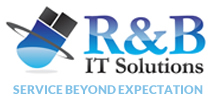Microsoft Has Ended All Updates and Support for Windows XP Operating System
Windows XP is 12 years old—that’s pretty old for an operating system. Why is this happening?
Microsoft has supported older operating systems much longer than most other businesses in this industry, but they can’t keep supporting old operating systems and still move forward creating new and better products.
Why Not Just keep The Windows XP Computers I Have?
Microsoft will no longer roll out security updates for the OS. That means your computer will be more susceptible to hackers and other scammers, who could exploit bugs that Microsoft is no longer fixing to gain access to your machine and steal your personal information and intellectual property.
Computers running on Windows XP will also become increasingly vulnerable over time — and there will be no one to prepare any fixes for the vulnerabilities. The malicious community is likely to aggressively research and pursue finding new exploits on XP.
The problem with an old operating system like Windows XP is that it’s not up to speed with modern attacks. Operating systems need to be patched (updated) frequently to keep them safe from data thieves, scammers, viruses, and the like. There are no more updates coming.
Even one computer running Windows XP could easily infect other computers on your network. Although the mobility of laptops allows workers to be productive wherever they go, security at home and in public places is much weaker compared to that of the office these devices could put the rest of your business network at risk.
What are my options?
In the end you have options. We’ll help you make the right choices.
Here are two possible scenarios for your business…
Option 1:
Keep using Windows XP
Keep using Windows XP
While it’s true that you can keep using your PC with Windows XP after support ends, we don’t recommend it. For starters, it’ll become five times more vulnerable to security risks and viruses, which means you could get hacked and have your personal information stolen. Also, companies that make devices like digital cameras, Internet-ready TVs, and printers won’t provide drivers that work with Windows XP, so if you get new devices, they won’t work with your current PC. And over time, the security and performance of your PC will just continue to degrade so things will only get worse.
Windows Internet Explorer 8 is also no longer supported, so if you use it (or any other browser) to surf the web, you might be exposing your PC to additional threats. Microsoft has also stopped providing Microsoft Security Essentials for download on Windows XP. To find out what this means, see “Will I still be protected if I use Microsoft Security Essentials?” later on this page.
Option 2:
Start using Windows 8.1
Start using Windows 8.1
If you don’t like the idea of your data and personal information being hacked, or your PC’s just not working like it used to, consider moving to Windows 8.1.
First, see if you can upgrade your current PC
PCs that are still running Windows XP have been around for many years, but there’s still a slim chance some of them might meet the system requirements for Windows 8.1.
If your PC is good to go, we’ll manage the upgrade to Windows 8.1 from Windows Vista or Windows XP tutorial.
If you can’t upgrade, it might be time to consider a new PC
You’ll be amazed at what a computer can do today.
How can R&B IT Solutions help update your business?
Leaving Microsoft XP behind can be a great productivity booster for your worforce.
